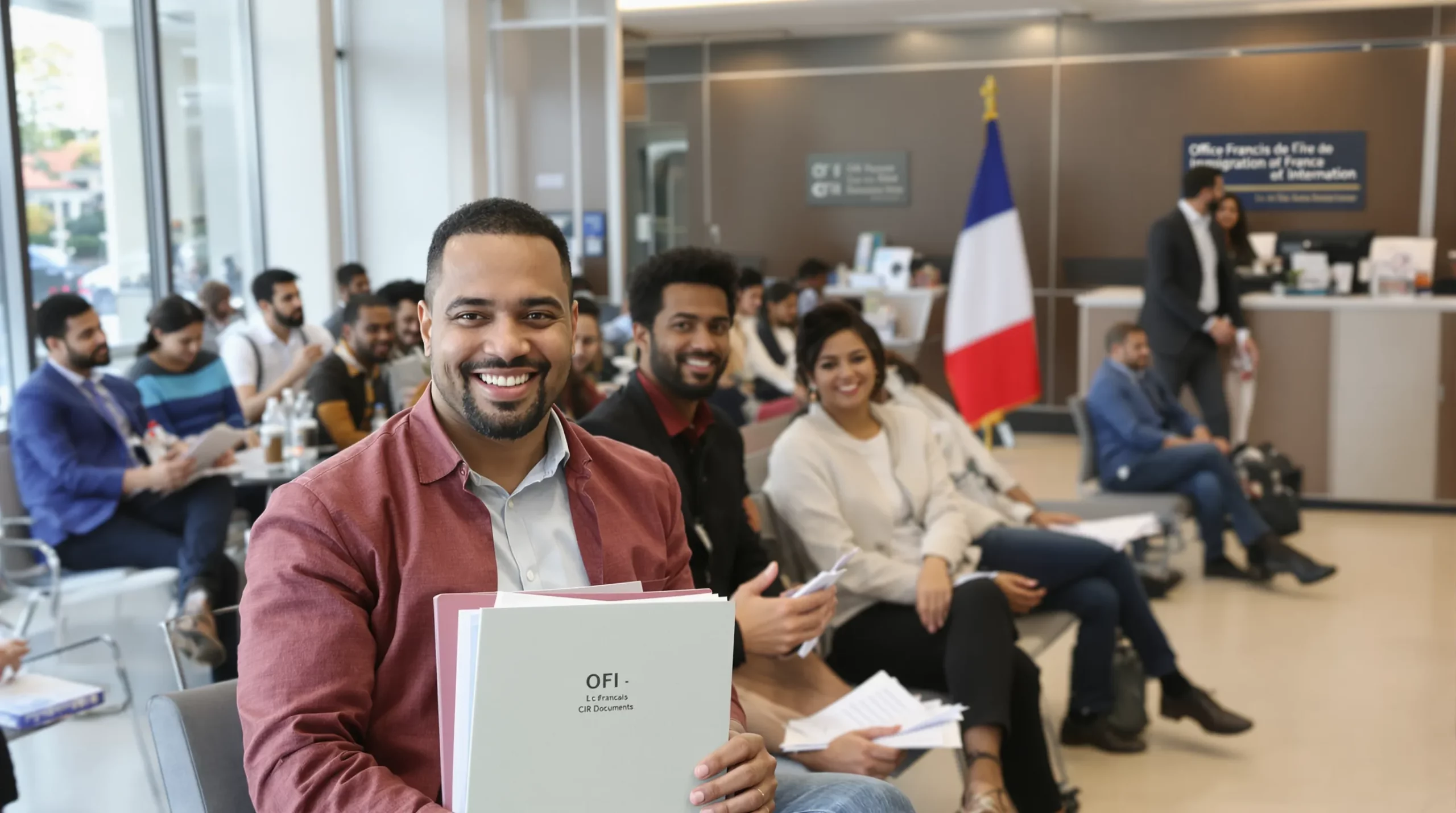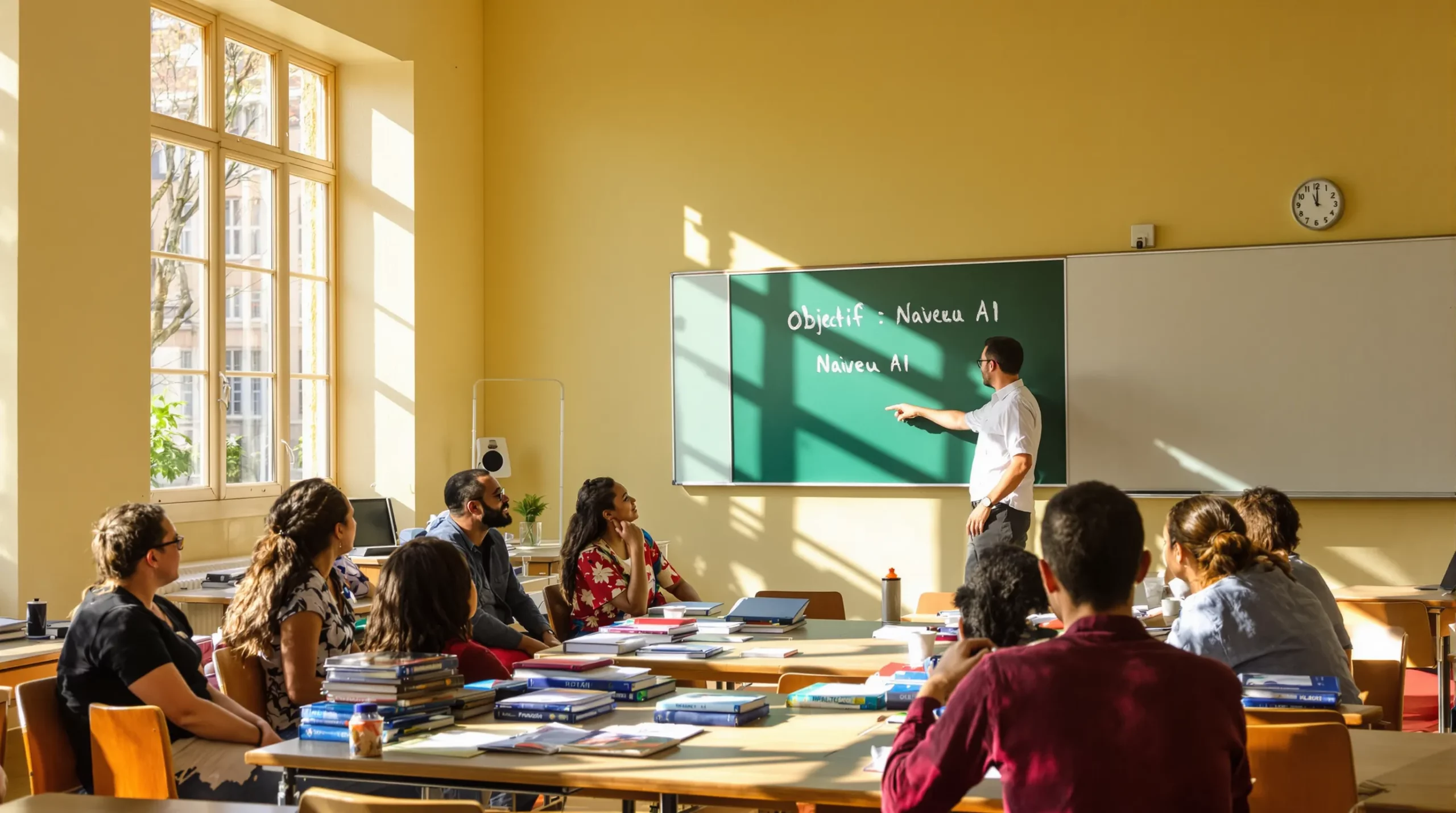Understanding the Contrat d’Intégration Républicaine (CIR) Before Your OFII Meeting

What Is the Contrat d’Intégration Républicaine (CIR)?
The Contrat d’Intégration Républicaine is a formal agreement between the French State and every newcomer granted a residence permit of at least one year. Signed at your first appointment with the Office français de l’immigration et de l’intégration (OFII), the CIR lays out what France expects from you—and what France will give you in return—during your first years in the country.
- Legal basis: Articles L.111-1 and L.435-1 of the Code de l’entrée et du séjour des étrangers et du droit d’asile (CESEDA).
- Main goal: Equip you with the linguistic and civic tools you need to live and work in France independently.
- Duration: The contract lasts one year but can be renewed once if required.
Understanding how the CIR works before you walk into the OFII office helps you avoid stress, stay compliant, and speed up future procedures such as multi-year residence permits or even French citizenship.
Timeline: From Visa Validation to CIR Completion
- Long-stay visa (VLS-TS) validation online within three months of arrival.
- OFII convocation: You’ll receive a letter, email, or SMS with the date, time, and address of your welcome session.
- Day of the OFII appointment:
- Medical check-up (if not already done).
- Individual interview with an integration officer.
- Signature of the CIR.
- Training phase (Month 1-12):
- Mandatory civic courses.
- Free French language training if your level is below A1.
- Final evaluation: You submit your certificates to OFII. Successful completion is recorded in your file and checked when you renew your titre de séjour.

Key Components You Will Be Asked to Sign
-
Civic Training (Formation Civique)
- Two one-day modules (or four half-days) on the history of France, secularism, public services, and everyday rights and duties.
- Sessions are interactive, with practical scenarios such as finding housing or understanding the school system.
-
Language Evaluation
- A placement test determines whether you meet the A1 oral and written level on the Common European Framework of Reference for Languages (CEFR).
- If you score below A1, you get 100 to 600 hours of free classes at an accredited center.
-
Professional Integration Guidance
- Information on recognizing foreign diplomas, job-search tools (Pôle Emploi), and vocational training.
- Some prefectures offer a dedicated meeting with a conseiller emploi.
-
Personalized Integration Pathway
- You and the OFII officer set concrete goals: finish language training, approve diploma equivalence, enroll kids in school, etc.
Failure to attend any mandatory session can lead to the suspension or non-renewal of your residence permit. Conversely, showing commitment can facilitate a multi-year card or a 10-year carte de résident later on.
Documents to Prepare Before Your OFII Meeting
- Convocation letter and its barcode.
- Passport and current residence permit (or VLS-TS sticker).
- Proof of address less than three months old.
- Vaccination records (for the medical visit).
- Diplomas or language certificates you already hold.
- Employment contract or CV if you are working.
Tip: Bring photocopies. Some OFII branches have limited access to copy machines.
What the OFII Appointment Looks Like
- Welcome Desk: Staff verify your identity and collect your documents.
- Medical Examination (about 30 minutes): vision test, chest X-ray, brief interview with a doctor. Children and pregnant women are usually exempt from X-ray.
- Individual Interview: An integration officer walks you through the CIR, evaluates your French level, and builds your personalized training plan.
- Signature of the Contract: You receive a folder with details of your civic course dates and, if necessary, the address of the language school.
Expect to spend 3 to 4 hours in total. Dress comfortably and bring a bottle of water or snack.
How to Pass the Language Requirement Faster
- Take an online placement test (e.g., TV5 Monde, Delf tout public) before the OFII meeting. If you already reach A1+, you can present a certificate.
- Use free resources such as the French government’s platform "Français pour tous" for self-study.
- Combine classes with community events: speaking with native volunteers at local associations accelerates progress.
Completing the language course ahead of schedule often shortens the overall CIR timeline, making your next residence permit application smoother.
Link Between the CIR and Future Immigration Steps
- Multi-year Residence Permit (2–4 years): Prefectures systematically check completion of civic and language modules.
- Long-term Resident Card (10-years): Requires proof of French proficiency at A2 level and effective integration; the CIR file is the first document they examine.
- French Naturalization: Demonstrating proactive integration—volunteering, stable employment, children in French schools—builds on the foundations set in the CIR.
For in-depth help with these next steps, explore our guides on residence permit renewal and French citizenship application.

Common Pitfalls and How to Avoid Them
- Skipping a Session: Inform OFII in writing at least 48 hours before if you are ill or working; they will reschedule once. Missing twice may jeopardize your status.
- Not Updating Address: If OFII letters bounce back, you risk missing convocations. File a change of address at La Poste and notify OFII immediately.
- Underestimating A1 Level: Many fluent speakers struggle with writing tasks. Practice basic dictation and formal letter writing.
- Ignoring Civic Course Homework: There is a short quiz at the end; failing means retaking the day.
Frequently Asked Questions (FAQ)
Do EU nationals sign the CIR? No. The contract only applies to third-country nationals receiving a first residence permit valid for at least one year.
Is the CIR mandatory for students? Students on VLS-TS "étudiant" visas are exempt. However, if you switch to a working permit later, the prefecture can invite you to sign it.
Can I work before I finish the CIR? Yes. The contract does not limit your right to work if your residence permit already authorizes employment.
How long does it take to receive the course certificates? Usually a few days after each module. Keep the originals; OFII keeps a digital copy.
What happens if I leave France for several months? Long absences can pause your language course. Notify both OFII and your language center. Prolonged absence (over six months) might void the contract.
Ready for Your OFII Appointment? We Can Help
A successful CIR builds the foundation for every later immigration step in France. If you’re worried about the interview, need personalized language coaching, or simply want a professional to double-check your file, ImmiFrance is here.
- One-on-one preparation sessions with certified lawyers and former OFII staff.
- Real-time case tracking in your personal dashboard.
- 92 % success rate for first-time residence permit renewals.
Book a free 15-minute consultation today to start your journey on the right foot.
